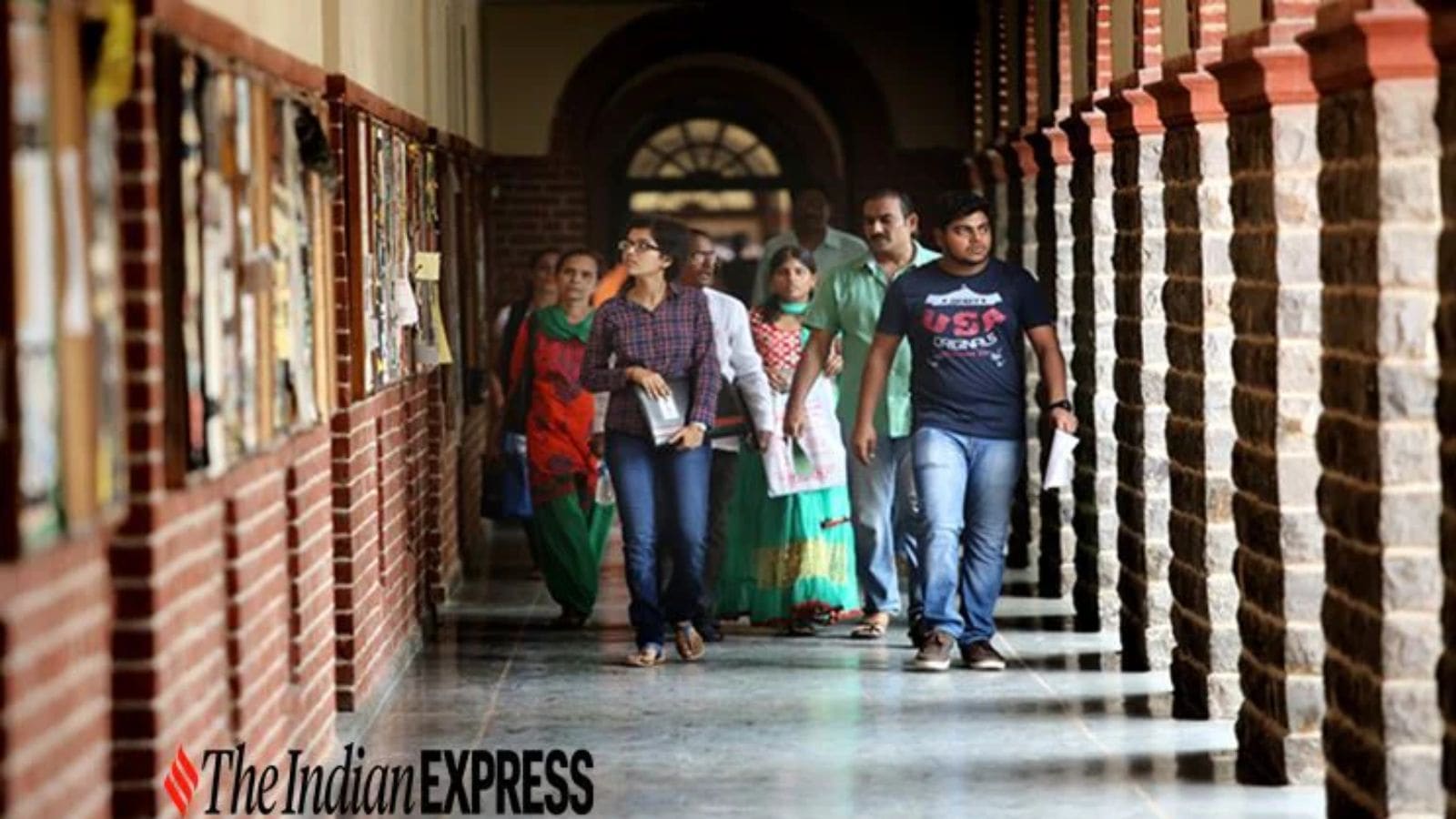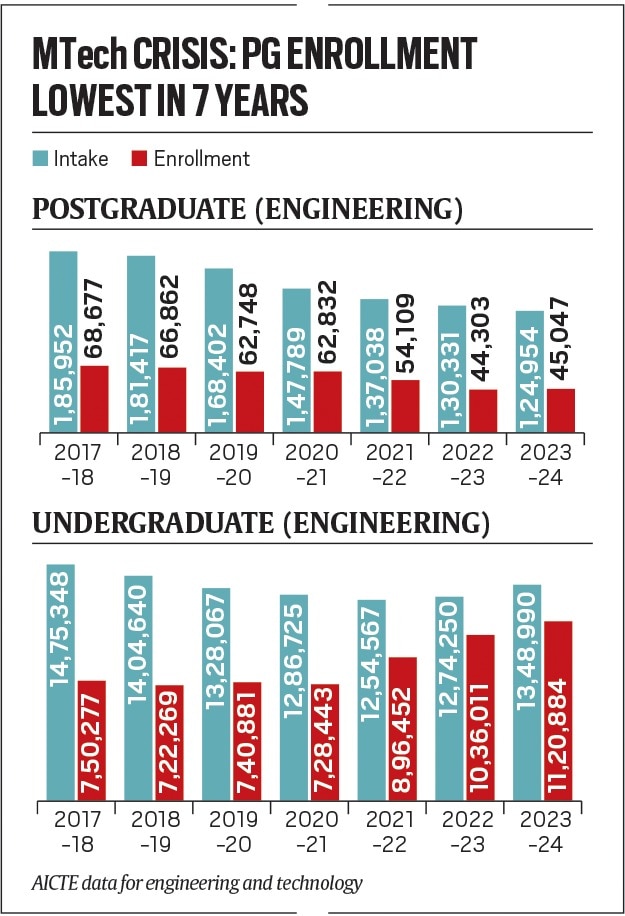Tale of two degrees: Nearly two in three MTech seats vacant across colleges even as BTech enrollment bounces back
Nearly two in three MTech seats are vacant in colleges across India. In contrast, BTech enrollment bounces back --- a revival that has come after a decade of decline.
 The last two academic years have seen the lowest MTech enrollment numbers -- just 44,303 students in 2022-23 with a 66% vacancy rate. The numbers rose only marginally to 45,047 in 2023-24. (Express File Photo)
The last two academic years have seen the lowest MTech enrollment numbers -- just 44,303 students in 2022-23 with a 66% vacancy rate. The numbers rose only marginally to 45,047 in 2023-24. (Express File Photo)
MTech Degree Trends in India: There’s a declining interest in India’s MTech courses. The latest data from the All India Council for Technical Education (AICTE) shows that nearly two of every three MTech seats in India’s engineering colleges lie vacant– a pattern that has persisted even as total postgraduate seats have shrunk by a third since 2017-18.
According to the data, MTech admissions have dropped to a seven-year low of 45,000 students over the last two academic years – a sharp contrast to rising BTech enrollment – with experts blaming this on factors such as lack of value addition from an MTech degree, disconnect between the curriculum and industry requirements and no significant advantages in terms of salaries.
Consider this: Seven years ago, postgraduate engineering and technology programmes across the country had 1.85 lakh seats, of which only 68,677 were filled, leaving 63% vacant. In 2023-24, despite total MTech seats shrinking by 33% to 1.24 lakh in response to declining demand, the vacancy rate has inched up to 64%, with just 45,047 students pursuing the degree (See bar graph).
The last two academic years have seen the lowest MTech enrollment numbers — just 44,303 students in 2022-23 with a 66% vacancy rate. The numbers rose only marginally to 45,047 in 2023-24.
The BTech scenario presents a sharp contrast. While nearly half (7.25 lakh) of the 14.75 lakh available UG seats went vacant in 2017-18, the vacancy rate has dropped dramatically in 2023-24 — only 17% (2.28 lakh) of the 13.49 lakh seats remain unfilled. BTech enrollment, too, has gone from 10.36 lakh in 2022-23 to 11.21 lakh in 2023-24 — a revival of sorts that has come after both intake and enrollment saw a year-on-year decline (read consolidation) for most of the past decade.
 MTech Crisis
MTech Crisis
Acknowledging the drop, AICTE Member Secretary Rajive Kumar said, “There is no interest in postgraduate studies, and it is a concern. Students are not finding much difference in salaries offered after postgraduation, compared to what they might get after completing BTech.” Students who are interested in teaching are likely to take up MTech courses, while those intending to work are choosing not to pursue postgraduation, he added.
Former AICTE Chairman SS Mantha said, “Progressively what happened is that industry was looking at undergraduate education which was fairly contemporary in terms of skills required, and they were not finding much value proposition in post graduate education. This means that if I can get my job done with an undergraduate, why should I hire a postgraduate and pay much higher salaries. The content, curriculum (at the postgraduate level) was not upgraded in terms of what was happening in industry.”
“Undergraduate students are also preferring to get into management as a postgraduate degree and not core engineering fields because management education has also undergone changes in terms of curriculum. It is not that the postgraduate curriculum has remained stagnant, but it looks more at research aspects. Our industry doesn’t need that. It is an application-based industry most of the time. There is a disconnect between the curricular aspects of a postgraduate education and requirements of the industry today,” Mantha said.
According to V. Ramgopal Rao, former IIT Delhi Director and Group Vice-Chancellor, BITS Pilani, while tier 1 institutions are able to fill up MTech seats but students quit when they get job offers from public sector undertakings through GATE scores.
“Those who are looking for high-paying jobs in the private sector tend to stick on with MTech. In the tier 2 and tier 3 institutions, it could be difficult to fill up seats because there isn’t much value addition coming from an MTech degree. Earlier, you needed an MTech to do a PhD, but that has mostly been removed everywhere. Another reason you would do an MTech is to find a job which will pay better than what you would have got with a BTech degree. But most MTech courses in tier 2, tier 3 institutions are not aligned with industry needs. Faculty who can train students at the Masters level are also not easy to find in every college,” he said.
- 01
- 02
- 03
- 04
- 05































